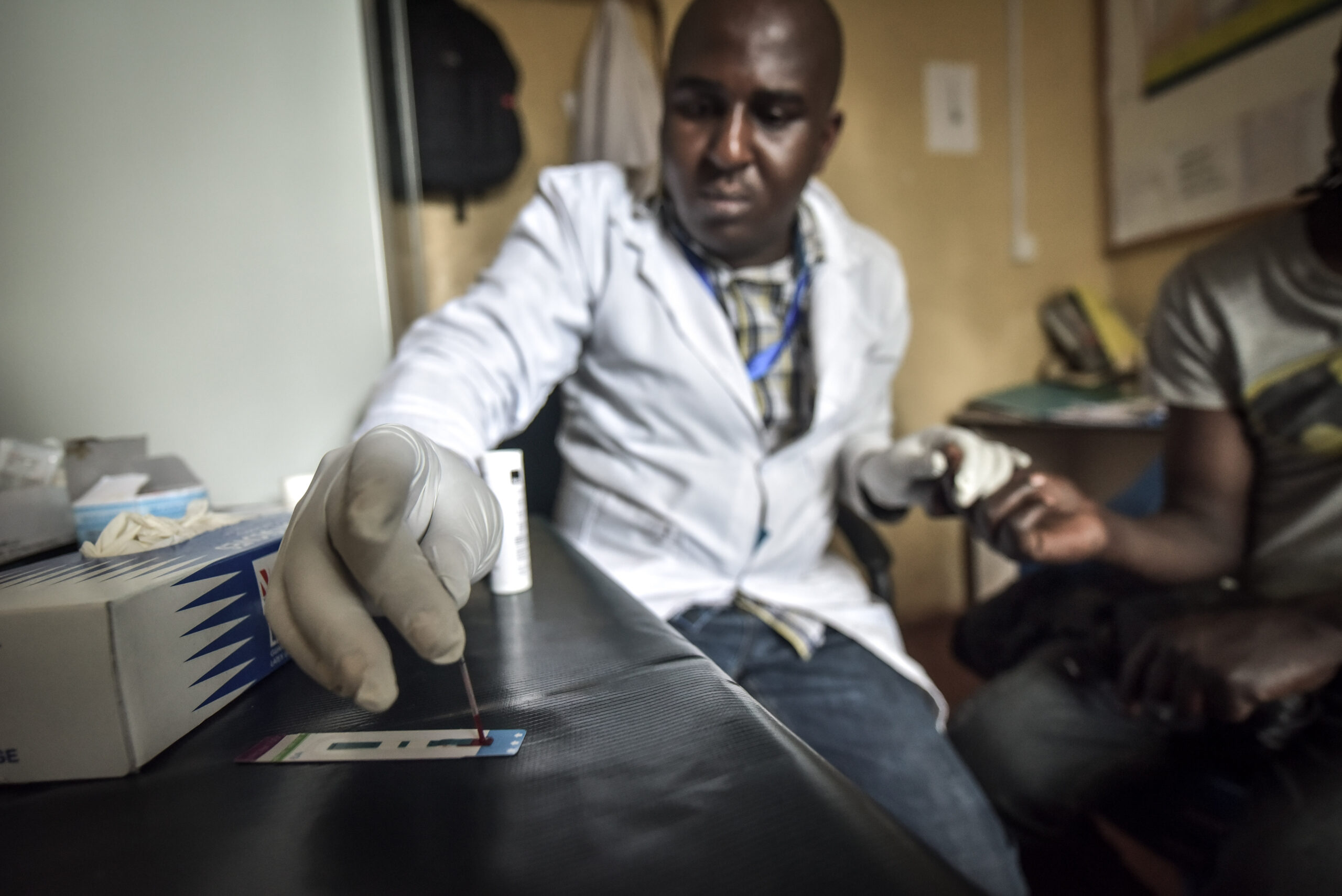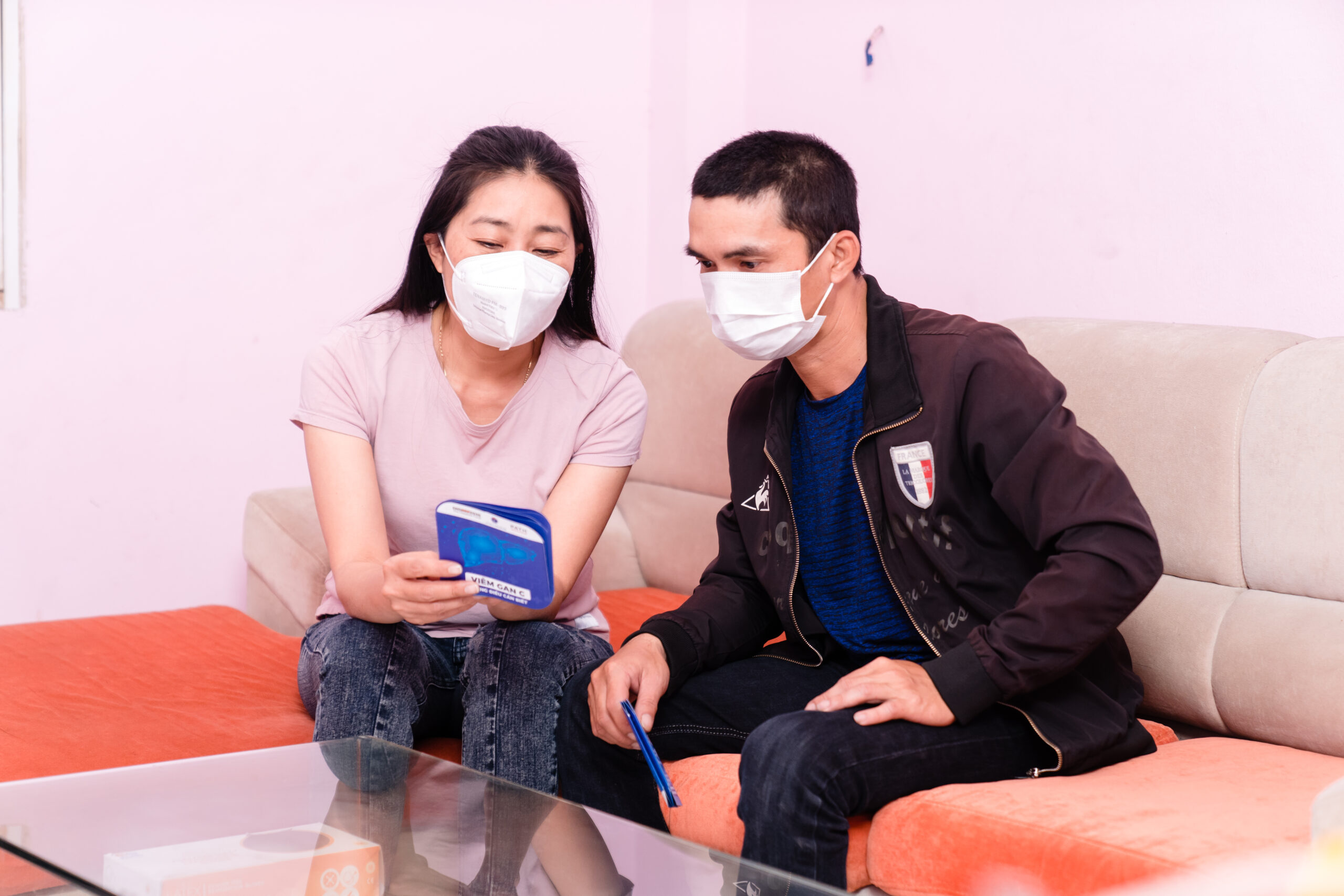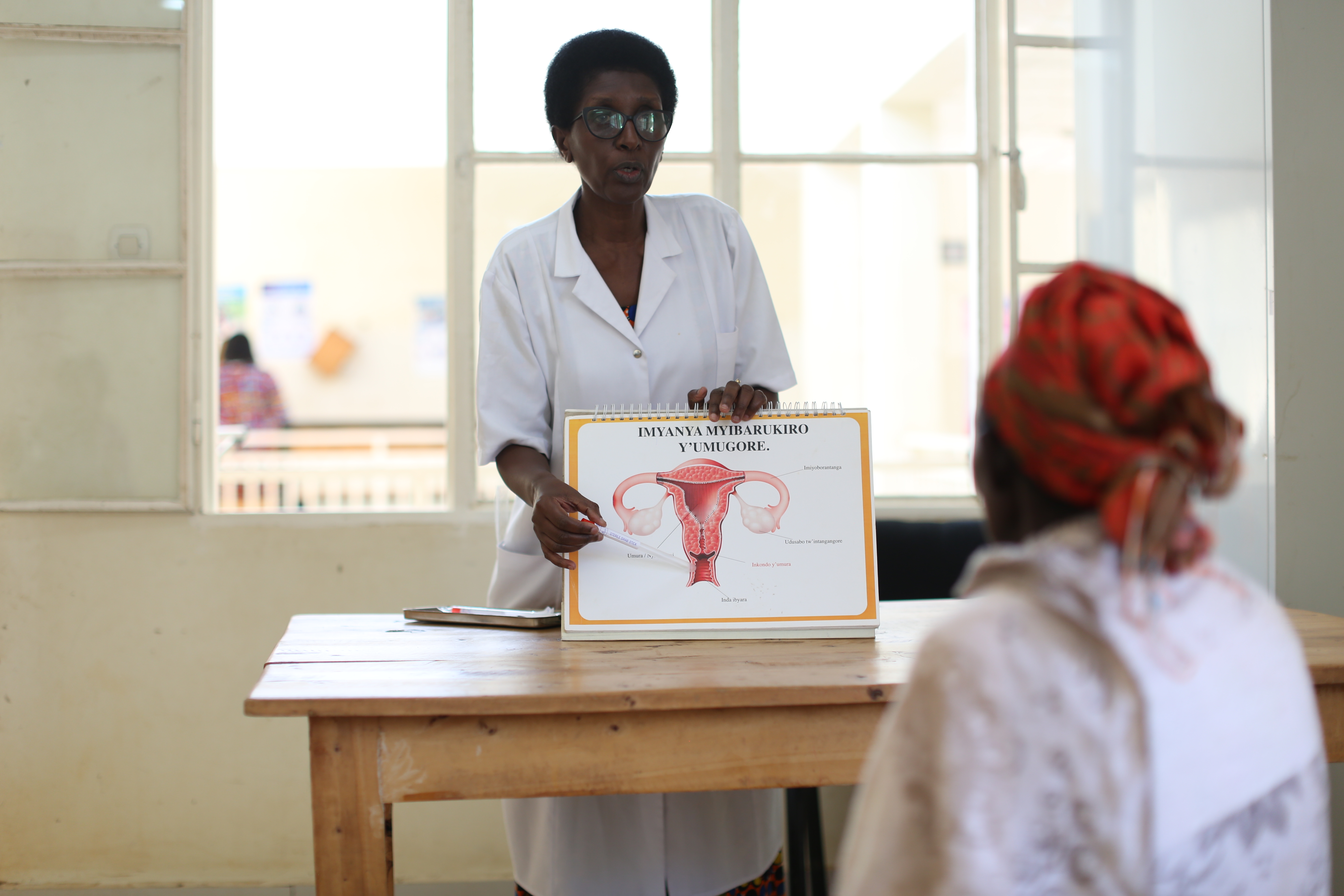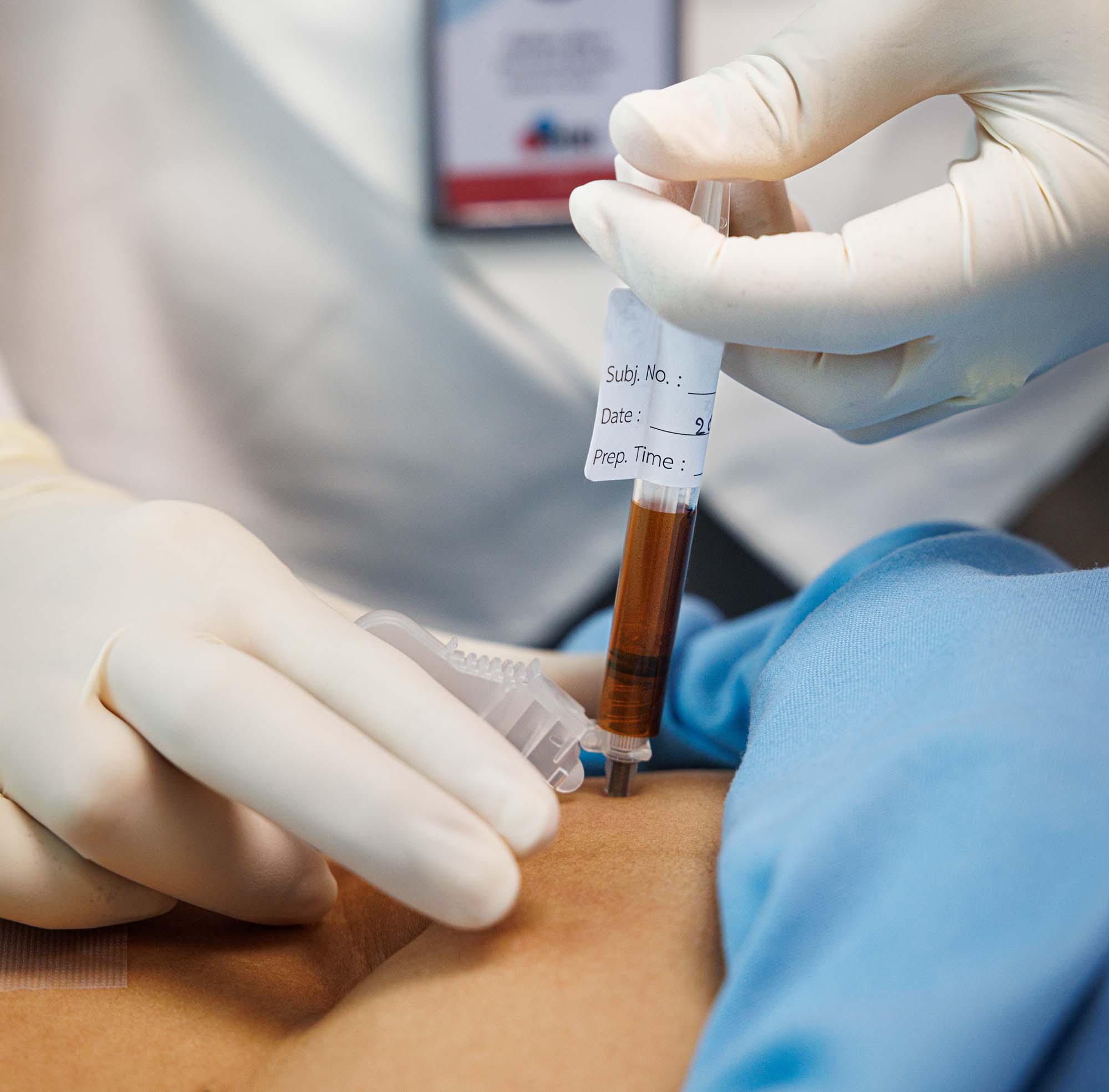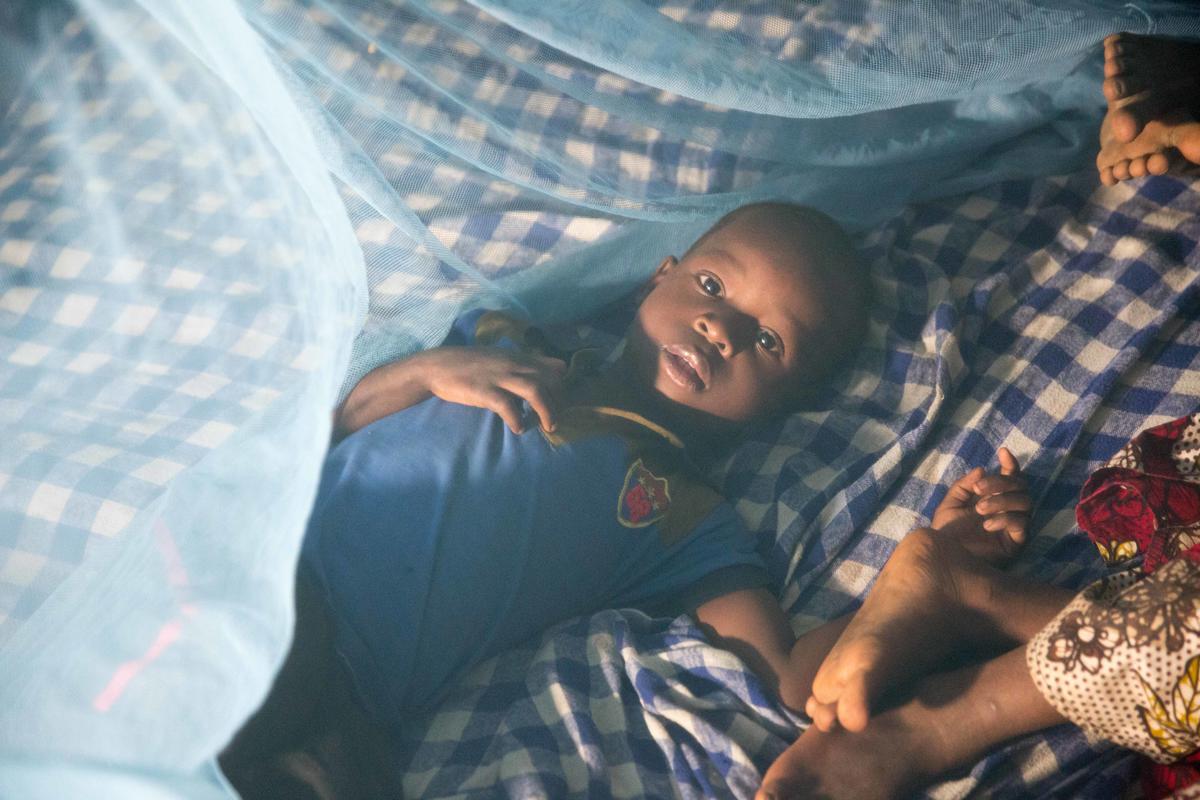The problem
For people living with HIV, viral load testing is an essential tool to monitor and adapt treatment, if necessary. An undetectable viral load also helps to avoid the risk of transmission. Regular viral load testing is recommended for any person on HIV treatment. However, introducing viral load testing came with many challenges for health systems in resource-limited countries, including the need for trained personnel, infrastructure, and the high cost of equipment and supplies.
Download the project evaluation
Progress
The OPP-ERA project expanded access to viral load testing on a larger scale and at an affordable cost in Burundi, Cameroon, Côte d’Ivoire and Guinea through the implementation of open polyvalent platforms (OPP), an alternative laboratory approach for settings with lower volumes of tests.
The OPP-ERA project increased access to viral load testing and integrated them into the four countries’ public health systems by creating the necessary conditions: creating functional molecular biology units; training health personnel; ensuring uninterrupted supply of the products needed to perform the test; developing systems for collecting samples and reporting results; and engaging with health authorities and people living with HIV to increase uptake and demand.




